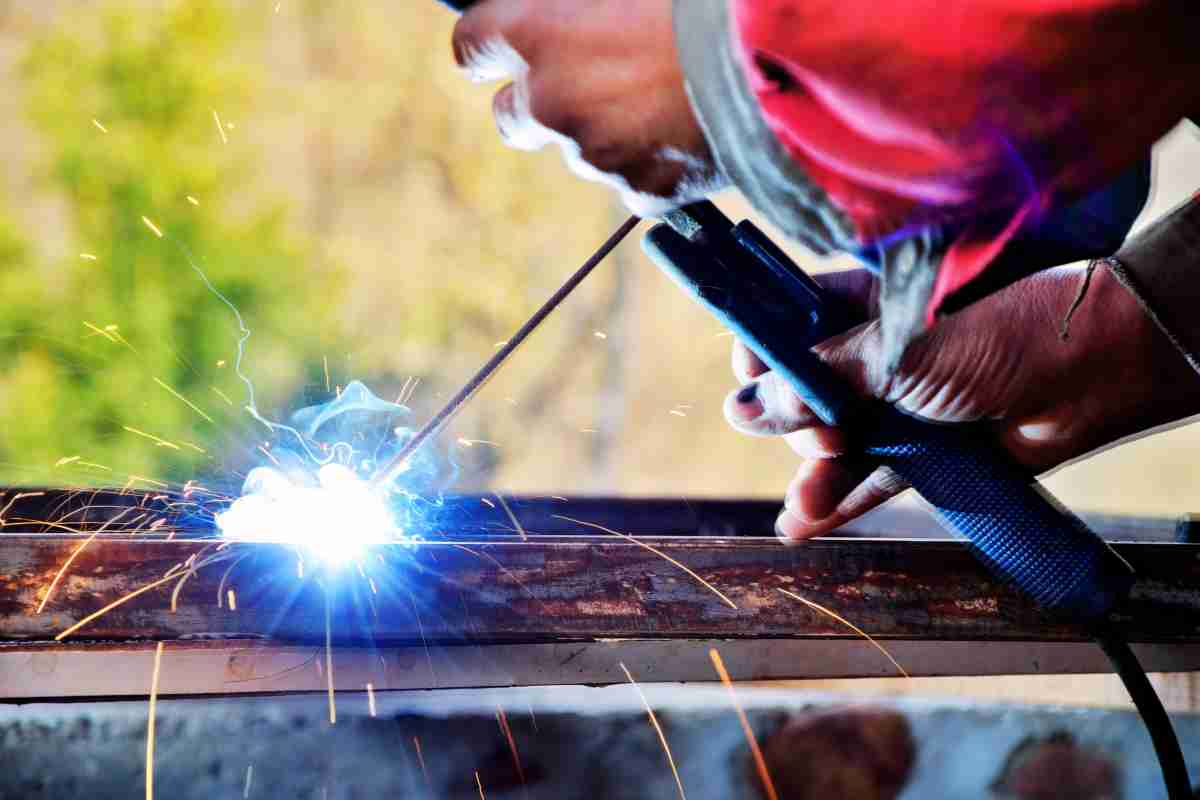Should Handymen Learn Metalwork in 2026?
Handypeople can boost their skillset by learning metalwork. Here’s whether picking up metalwork is a smart move for your handyman business in 2026.

If you’re a handyman (or handywoman), it can always be beneficial to add a new string to your bow of skills.
Learning metalwork could be worthwhile. So, let’s take a look at whether it’s something you should pursue in 2026.
Reasons to Learn Metalwork
Handymen gain a clear edge when they add metalwork to their toolkit. It turns ordinary repair work into flexible, custom service.
Each reason below explains how that extra skill pays off in practical, everyday ways.
You Can Expand Your Range of Repairs with Basic Metal Fabrication
A handyman who understands metal fabrication can take on more varied jobs without delay.
Simple welding or cutting lets you build frames, reinforce gates, or craft unique brackets.
Instead of turning clients away for metal tasks, you fix what others can’t.
This flexibility not only fills your schedule but also sets you apart as a true all-round problem solver.
You Can Reduce the Costs of Outsourcing Metalworkers
Hiring outside metalworkers can cut into your profit on small repair projects. When you handle basic welding or shaping yourself, those costs disappear.
You save the waiting time for subcontractors and keep control of project timelines.
Yes, metalwork tools require an upfront investment, but they pay for themselves after a few completed jobs.
Clients also prefer dealing with one person from start to finish, which improves efficiency and makes your work both faster and more affordable to deliver.
You Can Earn Client Trust by Offering Broader Skills
Metalwork knowledge adds authority to your reputation because it shows technical range and reliability.
A handyman who can weld, fabricate, and install hardware appears more dependable than one who must outsource each step.
That sense of trust leads to repeat business and referrals. People value consistency, and being the person who finishes every detail of a job builds a strong, lasting client connection.
You Can Stay Current with Material Trends in Modern Renovation
Home design in 2026 favors metal details like exposed steel shelving and custom railings. Handymen who understand metalwork can meet those demands directly instead of relying on prefabricated pieces.
Learning metalwork keeps your services aligned with the modern aesthetic that clients now expect.
It also improves collaboration with designers and builders who prefer mixed-material projects.
By adapting to these shifts early, you maintain relevance, stay competitive, and continue offering work that fits current renovation standards.
Types of Metalwork Worth Learning and Their Benefits
Different metalworking skills can serve specific repair or construction needs. Learning the right ones helps you complete jobs faster and with better results.
Welding remains the most practical starting point. It lets you repair frames, fences, or structural supports directly on-site.
For anyone looking to build a solid foundation in the craft, Arizona Automotive Institute’s combination welding program provides focused training that covers core welding methods used in real job settings.
Cutting and shaping metals come next. With these abilities, you can modify brackets, door frames, or sheet panels to precise dimensions. It makes custom fitting simple and keeps your finish work neat.
Finishing skills like grinding and polishing complete the process. They add durability and a professional look to every project.
When mastered together, these metalworking techniques turn routine repairs into durable, high-value results for both residential and commercial work.
When Learning Metalwork Might Not Be the Right Move
Metalwork adds value, but it also requires investment.
Training takes time away from paid work, and some jobs may not justify the added skill.
Also, equipment like welders and safety gear can be expensive, especially for small operations.
If your focus stays on quick, low-cost repairs, learning metalwork could slow progress instead of helping it, making other trade improvements more practical for now.
So, Should You Learn Metalworking?
The answer is probably yes.
The added skill broadens your capabilities, strengthens your reputation, and keeps you relevant in changing trades, even if it demands some cost and commitment first.
But ultimately, the decision is yours!




Comments ()